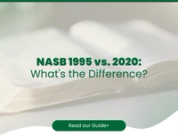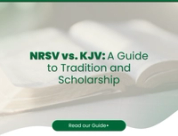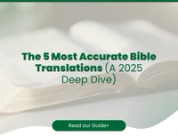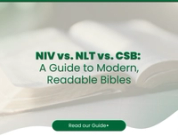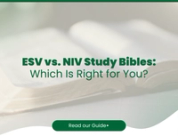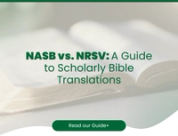When choosing a Bible, two of the most respected and popular modern translations you'll encounter are the New American Standard Bible (NASB) and the New International Version (NIV). They represent two different approaches to bringing the ancient texts into English, each with its own unique strengths.
Are you looking for a translation that is as grammatically literal as possible, perfect for deep, technical study? Or do you need a reliable, smooth-reading Bible that balances accuracy with natural, modern language for everyday use?
This guide will clearly compare the NASB and the NIV, helping you choose the translation that best fits your personal study and devotional needs.
The main difference between the NASB and the NIV is their translation philosophy: the NASB is a very strict "word-for-word" translation prized for its grammatical accuracy for deep study, while the NIV is a "thought-for-thought" translation that balances accuracy with readability for everyday use.
At a Glance: Key Differences
Quickly compare the NASB (New American Standard Bible) and the NIV (New International Version)
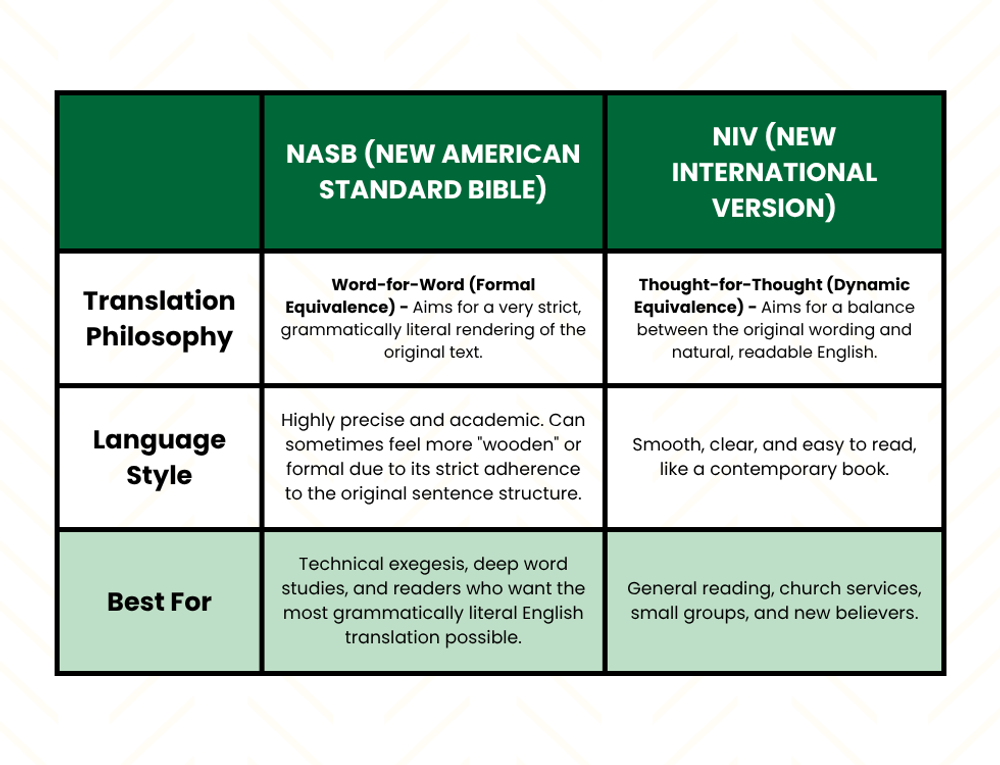
The NASB: The Standard for Literal Accuracy
The New American Standard Bible (NASB) is renowned for its unwavering commitment to a "word-for-word" translation. The scholars behind the NASB sought to reproduce the original Hebrew, Aramaic, and Greek texts in English with as much grammatical precision as possible. This makes it an exceptional tool for serious study. If you want to see the structure of the original sentences and perform detailed word studies, the NASB is one of the best resources available.
You should choose an NASB Bible if:
- Your highest priority is grammatical, word-for-word accuracy.
- You are a student or scholar doing deep exegetical work.
- You want a translation that is transparent to the original languages.
Our Top Recommendation for an NASB Bible:
NASB Giant Print Reference Bible
A fantastic edition for serious study, this Bible features the ultra-literal NASB text with a comprehensive cross-reference system in a clear and readable format. Shop Now
The NIV: The Standard for Readability and Balance
The New International Version (NIV) is the world's most popular modern English Bible, and its success lies in its balance. The NIV uses a "thought-for-thought" philosophy, aiming to convey the original meaning in a way that is both accurate and easy to read in natural, contemporary English. It's a trustworthy, all-purpose translation that is perfect for personal devotion, small group study, and public reading in church.
You should choose an NIV Bible if:
- You are looking for your main Bible for everyday reading and church use.
- You prioritise a smooth, easy-to-understand reading experience.
- You are a new Christian or are buying a Bible for a young person.
Our Top Recommendation for an NIV Bible:
NIV Life Application Study Bible
The UK's bestselling study Bible, this edition pairs the balanced NIV text with thousands of practical notes on how to apply Scripture to your life. Shop Now
Making Your Choice: A Study Tool vs. a Daily Reader
Choosing between the NASB and the NIV is about choosing the right tool for your primary purpose.
- For technical, in-depth study where literal precision is key, choose the NASB.
- For daily reading and devotion where clarity and readability are most important, choose the NIV.
Many people find that using both—the NASB for deep study and the NIV for daily reading—provides a rich and balanced engagement with God's Word.
Our Bible Finder tool can help you find the perfect Bible.
Still not sure which Bible is right for you? You can learn more in our complete, free 97-page ebook, 'How to Choose Your Bible'.





